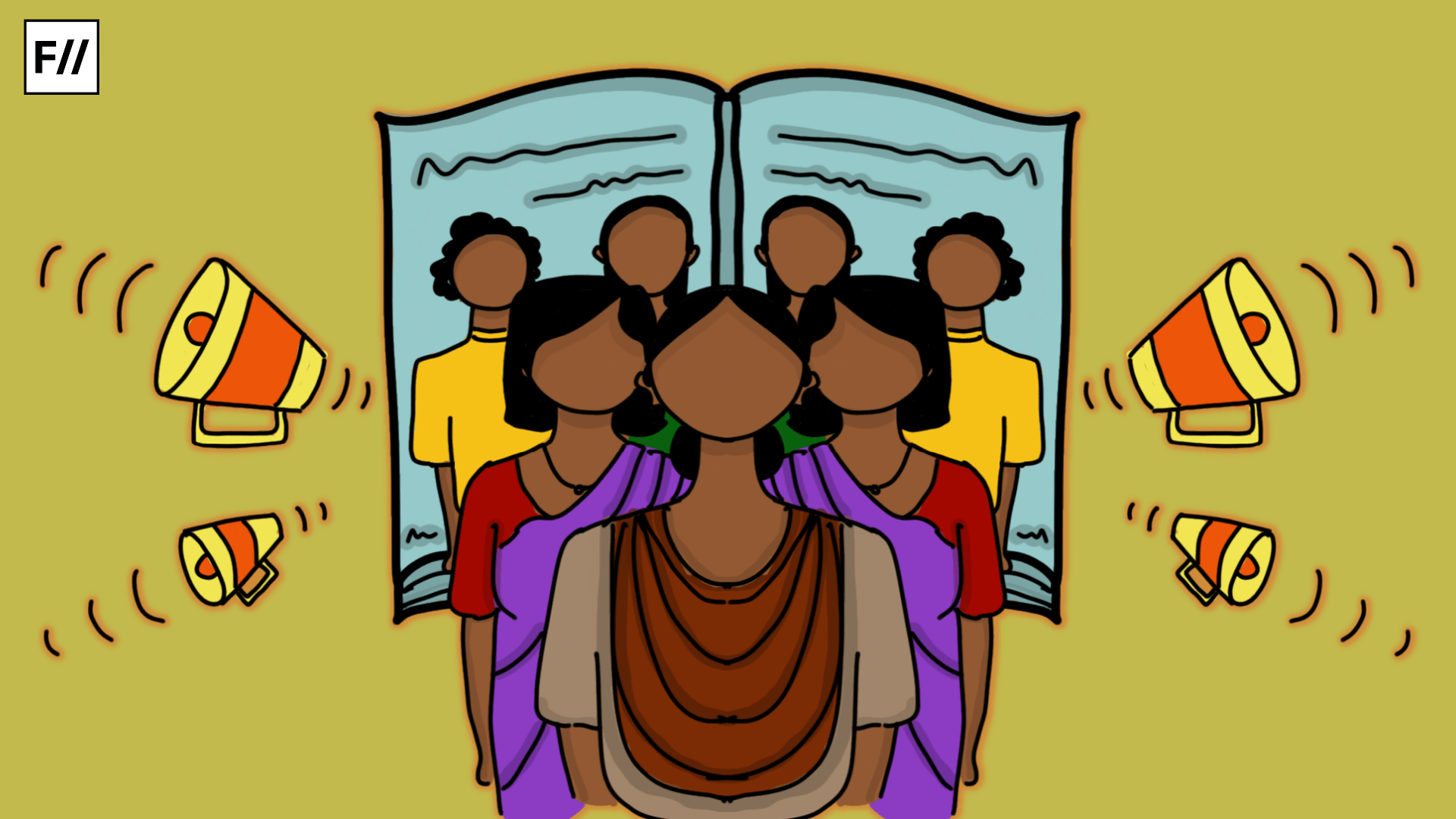The new ‘Change is Beautiful’ advertisement by BIBA is being hailed as progressive and gender inclusive by many on social media. However, I’m disappointed to report that it’s not as ground breaking and stereotype changing as the makers would have you believe. Here’s the video for those of you who haven’t already seen this.
The ad starts with a woman sitting at her dressing table, putting on a pair of ornate earrings. Her father enters her room, scolding her for not being ready yet. “Everyone is waiting downstairs“, he says. Without making eye contact for the most part, she asks meekly, how she is supposed to choose a husband over a plate of samosas. The father has no response, and only tells her to hurry up with a definitive and conversation ending “Jaldi karo!”.
The meeting goes well, and Auntyji is impressed with Payal. “Toh main yeh rishta pakka samjhu?” she asks, and I’m left wondering what qualities of Payal she assessed to deem her the perfect bride for her son. Was it her academic and professional success, or her impeccable conversational and social skills? Was it the immense contribution she was making to the society through her work, or the widespread critical acclaim which the books authored by her had received? I’d never know, because while Payal could have any one or more of these things to her claim, she is neither asked, nor does she get to speak a single word about herself. So I’ll assume she based it solely on how Payal looks and her culinary skills (?) because that’s what the conversation that follows is largely based around. Meanwhile, none of this has bothered Payal’s father who responds with “Of course! BUT..” and here comes the supposed ‘conversation changing’ plot twist. The father announces that he wants to visit the prospective groom’s house as well to check whether the he knows how to cook! Oh the drama!
Auntyji laughingly says that her darling son can’t even boil water, and can only make noodles in the microwave (at this point I’m thinking it’s really strange that the two people who are supposed to get married haven’t said a word to each other…also, I had no idea noodles could be cooked in a microwave). The father is unimpressed, saying his Payal can’t live on just noodles. Seriously uncle, let HER say that! Let her say SOMETHING! By this point, I’m channeling my inner Ross and thinking/begging “ANY words would do!” But wait, here comes the apparent double twist (cue ominous music) – someone else FINALLY speaks up! Alas! It’s not Payal, who by this time could be mistaken for Narendra Modi during the intolerance debate. Instead, it is the groom-in-waiting, who asks uncleji – not Payal – to come over to his house after ten days, promising he’d have learnt to cook something by then!
So let me get this straight, the girl is by default expected to cook and spend a major portion of her life first learning and then doing it, but if the guy promises to spend ten days watching Masterchef Australia to throw together a half decent plate of food, it is revolutionary?
Here is my problem, I couldn’t really tell what’s the real change.. What is different? The woman still had absolutely no say in whom she marries, and her doubts are nonchalantly dismissed by her father. The entire conversation is conducted and controlled by the father, the woman in question doesn’t say a word and I barely even see her mother. The prospective mother-in-law seems rather proud that her son doesn’t possess the basic life skills required to sustain himself, and the entire discussion takes place as though the woman whom he is hoping to marry isn’t even in the room. So much so, that Payal isn’t even acknowledged by the boy at the very last second of the film.
So basically, the ‘change’ is represented through the man who asks if his future son-in-law can cook and the man who says he will learn how to cook -– TO PLEASE HIS FUTURE FATHER IN LAW! That’s great, really.
Except it’s not.
Know why? Because women and men should both know how to cook. The ability to feed oneself shouldn’t depend on one’s gender. So are we really expected to be thrilled about the fact that a grown man decided to figure his way around a kitchen and cook something other than instant noodles?
I’m sorry to find that the ‘inspiring’ ad film doesn’t question what really needs to be questioned- a woman’s complete lack of autonomy over her life, her decisions, her body. Payal could have done so much more- maybe had a conversation with her father and her mother (!) about her doubts. Or maybe had an actual conversation with the man she was supposed to marry. Maybe she could have said no altogether. Perhaps that is too drastic a change for Indian advertising to consider – but you know what, it’s 2016 and instant noodles are probably on their way out anyway.
Disclaimer: This piece is part of the Conditioning is for Hair, Not Minds series in collaboration with The Spoilt Modern Indian Woman.
About the author(s)
Women’s Studies student, foodie, and feminist, with an unhealthy addiction to rajma-chawal. She blogs at: https://bicyclewithoutafish.wordpress.com/




